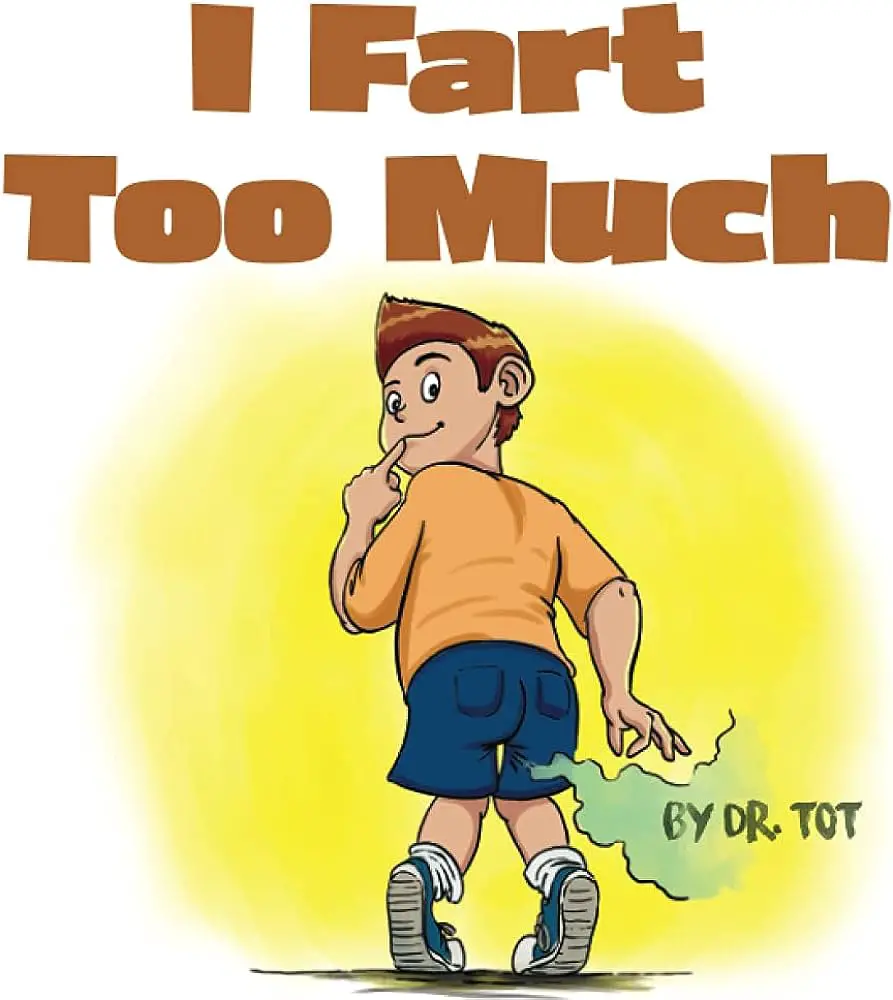How to cure farts?
Tired of those awkward moments when an unexpected toot slips out at the worst possible time? Wondered, How to cure farts?
You’re not alone. Whether it’s from indulging in your favorite foods or just a common bodily function, excessive flatulence can be both embarrassing and uncomfortable.
But fear not! In this blog post, we’re about to unravel the mysteries behind the ‘silent but deadly’ dilemma and provide you with practical tips and remedies on how to cure farts and regain control of your digestive system.
Say goodbye to the discomfort and embarrassment, and hello to a more confident, gas-free you!
Understanding Flatulence
Flatulence occurs when gas accumulates in the digestive system and is expelled through the rectum.
It is primarily composed of nitrogen, oxygen, carbon dioxide, and small amounts of other gases. While passing gas is normal, persistent or foul-smelling flatulence may indicate an underlying issue.

How to cure farts?
Dietary Modifications
1. Identify Trigger Foods
One of the first steps in curing farts is identifying foods that trigger excessive gas production. Common culprits include beans, cruciferous vegetables, dairy products, and carbonated beverages. Keep a food diary to track your diet and pinpoint problematic foods.
2. Reduce Fiber Intake
While fiber is essential for a healthy digestive system, consuming excessive fiber can lead to increased gas production. Gradually reduce your fiber intake and opt for soluble fiber sources like oats and fruits.
3. Avoid Artificial Sweeteners
Artificial sweeteners, such as sorbitol and mannitol, found in sugar-free gum and candies, can cause gas and bloating. Read food labels carefully and limit your intake of these additives.
Here how to fart with your hand?
Lifestyle Changes
4. Eat Slowly and Mindfully
Eating too quickly can lead to swallowing air, which contributes to gas buildup. Practice mindful eating, chew your food thoroughly, and savor each bite to reduce the intake of excess air.

5. Regular Exercise
Engaging in regular physical activity can aid digestion and reduce gas. Simple exercises like walking and yoga can be particularly effective in alleviating gastrointestinal discomfort.
6. Stress Management
Stress can disrupt the digestive process and lead to flatulence. Incorporate stress-relief techniques like meditation and deep breathing exercises into your daily routine.
Herbal Remedies
7. Peppermint Tea
Peppermint tea contains compounds that can relax the muscles of the gastrointestinal tract, reducing gas and bloating. Enjoy a cup of peppermint tea after meals for relief.
8. Ginger
Ginger has anti-inflammatory properties and can help soothe the digestive system. Consider adding fresh ginger to your meals or drinking ginger tea.
Medical Intervention
9. Over-the-Counter Medications
If dietary and lifestyle changes do not provide relief, over-the-counter medications like simethicone can help break down gas bubbles in the digestive tract.
10. Consult a Healthcare Professional
If excessive flatulence persists, consult a healthcare professional to rule out underlying medical conditions such as irritable bowel syndrome (IBS) or food intolerances.
How to cure farts?
How to cure farts? Well farting is a natural bodily function that occurs when your digestive system produces gas.
While it’s not possible to completely eliminate farting, you can take steps to reduce excessive gas and make it less problematic.
Here are some tips to help you manage excessive farting:
-
Dietary Changes:
-
Fiber:
-
Gradually increase your fiber intake from fruits, vegetables, and whole grains. Fiber helps regulate digestion and reduces gas.
-
-
Gas-Producing Foods:
-
Limit or avoid foods known to cause gas, such as beans, broccoli, cabbage, cauliflower, onions, and carbonated drinks.
-
-
Lactose:
-
If you’re lactose intolerant, avoid dairy products or choose lactose-free alternatives.
-
-
Artificial Sweeteners:
-
Some sugar substitutes like sorbitol and mannitol can cause gas. Read food labels and avoid them if necessary. Here how to make your baby fart?
1. Chew Your Food:
Eating too quickly can lead to swallowing air, which can result in more frequent farting. Take your time and chew your food thoroughly.
2. Avoid Chewing Gum and Smoking:
Chewing gum and smoking can introduce more air into your digestive system, leading to increased gas production. Try to cut back or eliminate these habits.

3. Probiotics:
Consider taking probiotic supplements or consuming yogurt with live cultures to promote a healthy gut microbiome and improve digestion.
4. Be Mindful of Carbonated Drinks:
Carbonated beverages can contribute to gas. Limit your consumption of soda and carbonated water.
5. Stay Hydrated:
Drinking plenty of water can help move food through your digestive system more smoothly and reduce the likelihood of gas buildup.
6. Regular Exercise:
Engage in regular physical activity to stimulate digestion and promote regular bowel movements.
7. Over-the-Counter Remedies:
You can try over-the-counter gas-relief products containing simethicone to help break down gas bubbles in your stomach.
8. Stress Management:
Stress can affect digestion. Practice stress-reduction techniques like meditation, yoga, or deep breathing exercises.
9. Medical Evaluation:
If excessive farting is accompanied by other digestive symptoms like bloating, abdominal pain, diarrhea, or constipation, consult a healthcare professional.
These symptoms could be indicative of an underlying condition like irritable bowel syndrome (IBS) or food intolerances.
Remember that occasional farting is normal and healthy. It’s only a cause for concern if it’s accompanied by other troubling symptoms or if it significantly impacts your daily life.
Always consult a healthcare provider for personalized advice if you have concerns about your digestive health.
Frequently Asked Questions (FAQs)
1. Is it normal to fart frequently?
Yes, occasional flatulence is entirely normal. However, excessive or persistent gas may require further investigation.
2. Can certain medical conditions cause excessive flatulence?
Yes, conditions like irritable bowel syndrome (IBS), lactose intolerance, and celiac disease can lead to increased gas production.
3. How long should I try dietary changes before seeking medical advice?
If dietary changes do not provide relief within a few weeks, it’s advisable to consult a healthcare professional.
4. Are there any foods that can help reduce flatulence?
Yes, foods like ginger, peppermint, and fennel can aid in reducing gas and bloating.
5. What should I do if I experience severe abdominal pain along with excessive flatulence?
If you experience severe abdominal pain, it’s essential to seek immediate medical attention, as it could be a sign of a more serious issue.
How do you get rid of gas farts fast?
To alleviate gas and reduce farting quickly, try over-the-counter gas relief medications, avoid gas-producing foods, drink peppermint tea, and engage in light physical activity.
How can I reduce my farts naturally?
Reduce natural gas by avoiding gas-inducing foods, eating smaller meals, chewing food thoroughly, staying hydrated, practicing stress management, and incorporating ginger or peppermint into your diet.
How can I stop my fart?
To prevent or control farting, avoid gas-producing foods, eat slowly, stay hydrated, manage stress, and consider dietary changes. Consult a doctor if excessive flatulence persists, as it may indicate underlying issues.
What reduces fart smell?
To lessen fart odor, consider dietary changes like reducing sulfur-rich foods, consuming activated charcoal, using air fresheners, or trying over-the-counter supplements designed to reduce flatulence odor.
Conclusion
Curing farts involves a multifaceted approach that combines dietary modifications, lifestyle changes, herbal remedies, and, if necessary, medical intervention.
By identifying trigger foods, adopting healthy habits, and exploring natural remedies, you can significantly reduce gastrointestinal discomfort and improve your overall quality of life.



